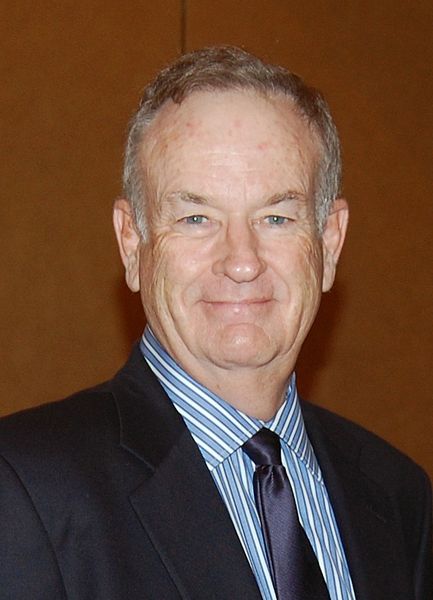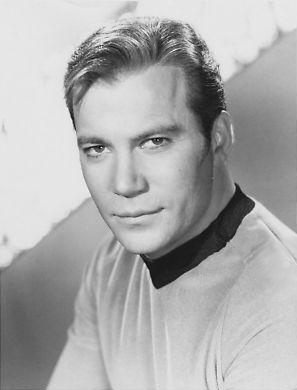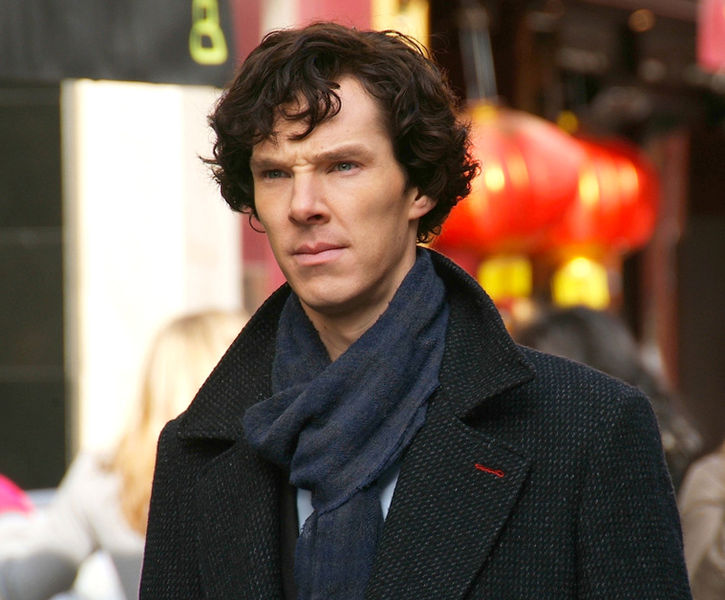Big Rivals On The Small Screen: Picking A Winner in TV Wars

When heads are butted, who comes out the victor in these spats?
Between the networks
With the 2012 election season drawn to a close (and yes, it is too early to talk about 2016.), the top 3 American news networks of CNN, Fox News and MSNBC are lying in wait to capture the spotlight for the next headline story.
Fox News, for example, whose mainstay figureheads include Bill O'Reilly ("The O'Reilly Factor", pictured right) and Sean Hannity ("Hannity"), may be the butt of most of Stewart and Colbert's punchlines, but they have a steady and devoted bastion of conservative followers who are dedicated to the "fair and balanced reporting" and "real journalism" it supposedly touts.
Its major competitors, CNN and MSNBC, are often accused of an increasingly liberal bias. While MSNBC has acknowledged its "progressive" stance in opinion programming, CNN has prided itself on unbiased, nonpartisan reporting that has caused the network to lose scores of viewers to its partisan competitors. Both sides of the political divide have criticized CNN’s impartial content—conservatives allege the network has a liberal slant and liberals claim CNN pushes a conservative agenda.
And the winner is…CNN. Beleaguered by critics from all sides, the network wins this battle, both morally and journalistically. By pursuing non-biased reporting, CNN can truly be called "the worldwide leader in news", in spite of its critics' remarks (which only serve to further solidify the organization's trustworthiness.)
O Captain, My Captain
Kirk or Picard? For Trekkies, this question could prove to be a torturous process. Does one swear allegiance to William Shatner’s Captain James T. Kirk, the first captain of the Starship Enterprise, or instead, pick Patrick Stewart’s Captain Jean-Luc Picard of “Star Trek: The Next Generation” to lead them through the final frontier?

Jean-Luc Picard is noted for his logical thought processes that reflect a more progressive Enterprise for a more progressive generation of viewers. As an authoritarian who makes up what he lacks in panache with his vast intelligence, some fans consider Picard to be the better captain while Kirk is the better hero. While Picard would rather quietly and efficiently dismantle that episode’s threat from his captain’s chair, Kirk would prefer to punch out the villain of the week with customary braggadocio.
Kirk’s character, not Picard’s, has been brought back for a modern generation of Trekkies in J.J. Abrams’ reboot of the series in his 2009 movie, “Star Trek”, with Chris Pine playing the bold, brash captain. In contrast to the mixed reviews regarding Shatner’s acting, Pine’s interpretation of the classic action man has received mostly favorable critiques.
And the winner is…Captain James T. Kirk. In spite of his over-the-top antics and occasional chauvinism, he is the figurehead for the Star Trek franchise. J.J. Abrams’ reboot of the character into a grittier, darker captain, the weaknesses of Shatner’s performance have the potential to be ignored in light of Pine’s update, which can be seen in “Star Trek Into Darkness,” the sequel to the 2009 film on May 17, 2013.
Sir Arthur Conan Doyle’s best-laid plans go awry
Arthur Conan Doyle never wanted Sherlock Holmes to become his main literary achievement. He hated the character so much he tried to kill him twice. To his dismay, Holmes continues to be re-imagined and updated in every possible way, by the BBC in its television series “Sherlock” (series one aired in 2010, series two in 2012), now joined by CBS’ new drama “Elementary”.
The “Sherlock Holmes” stories inspired a devoted fan-base at the time of their publication, to the point that, after Doyle tried to kill off the eponymous character the first time, old ladies beat him over the head with their umbrellas until he agreed to write again. That same fan-base (called Holmesians, or Sherlockians) has been active in the wake of the modern re-interpretations, especially vigorous in support of BBC’s “Sherlock” (2010, 2012), penned by “Doctor Who” alums Steven Moffat, Mark Gatiss and Stephen Thompson. In early 2012, CBS announced its own show, “Elementary” would begin production.

“Elementary” features a newly-rehabilitated Sherlock Holmes (Jonny Lee Miller) in New York City. Dr. Joan Watson (Lucy Liu), a former surgeon who left her job after losing a patient on the table, is his sober companion. Watson has taken up residence with Holmes at the behest of the latter’s father, a unique twist on well-known stories.
Originally, CBS had been bidding for the broadcast rights for “Sherlock” in 2009, but were denied in favor of PBS. After this rejection, CBS greenlit “Elementary”, upsetting “Sherlock” fans and forcing viewers to pick a side.
“Sherlock” fans criticize “Elementary” for deviating from the Holmes canon, for "ruining" the original relationship dynamic between Sherlock Holmes and John Watson, for removing Holmes from London, and for gender-bending Watson’s character as a cheap ploy at sexual tension. In addition, these fans are steadfastly loyal to Moffat and Gatiss, and consider “Elementary” to be CBS’ childish reaction to the BBC’s rejection.
“Elementary” fans escalate the argument by generalizing “Sherlock” fans as “short-sighted,” “misogynistic” and “racist”, who dislike the show because Watson is a female character of color. In addition, they characterize the “Sherlock” fandom as a group of gay-obsessed devotees of Gatiss and Moffat, who hate “Elementary” on principle without viewing an episode.
And the winner is…BBC’s “Sherlock”. From the standpoint of a die-hard Sherlockian (as in, the original stories written by Arthur Conan Doyle), the BBC’s interpretation is filled with quips and clever references to canon, and interprets the stories in an intelligent and enjoyable manner. CBS’ apparent spiteful reaction to being denied broadcasting rights puts the network in the wrong. In addition, “Elementary” loses some gravitas with a canon-fan because of the New York City-London changeover, as well the change in Watson’s backstory from a war hero to a failed surgeon, when there was so much opportunity for a strong, independent female character who has a rare military background (after all, in the novels, Watson first met Holmes after being invalided a result of being shot in Afghanistan)). “Elementary” seems very much like the classic CBS police procedural; on occasion, it seems that the only similarity between the show and the novels are the names “Sherlock Holmes” and “Joan Watson”. However, “Elementary” has potential to improve, and can be found Thursdays at 10 on CBS. Series one and two of “Sherlock” (six episodes, three per series) can be found on Netflix. Series three will begin filming in January.
Reach Staff Reporter Christine Bancroft here. Follow her on Twitter here.



